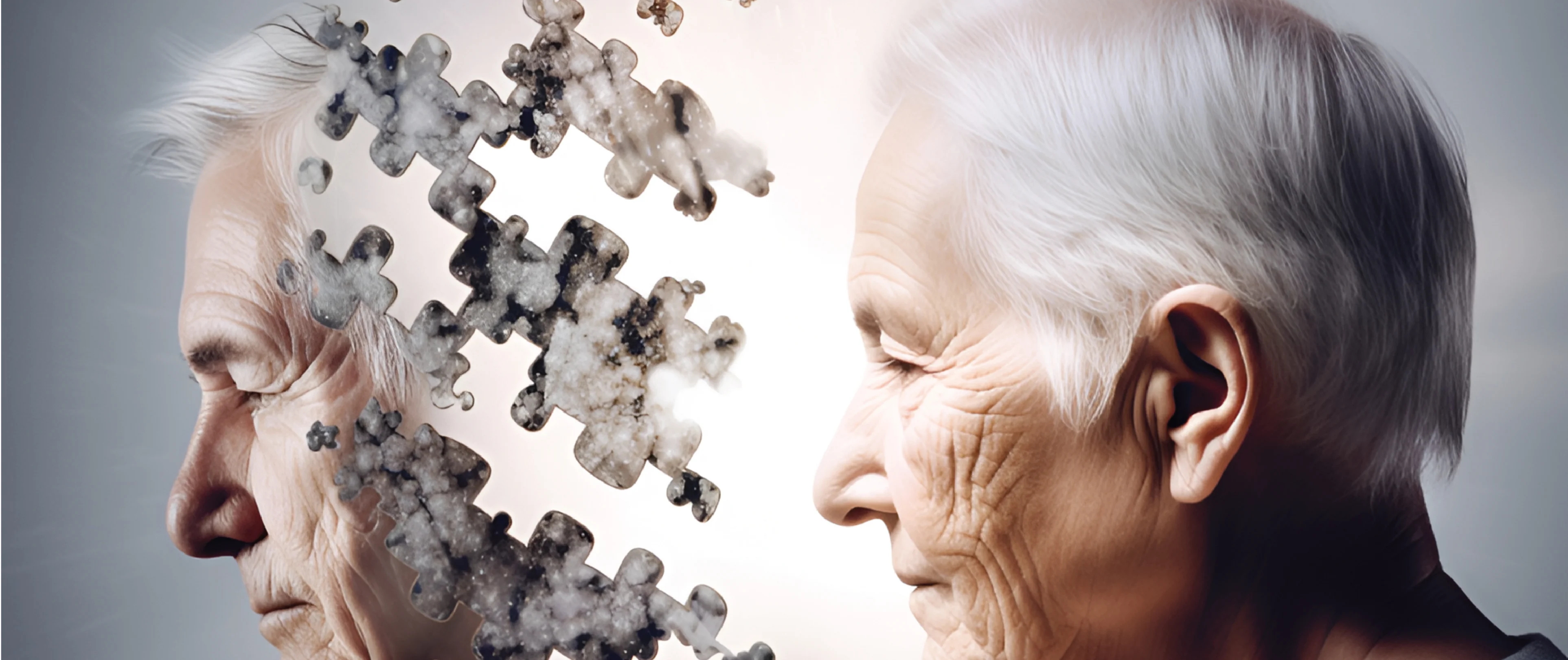
Book an Appointment
Call Us01140846835Alzheimer's Disease: Recognizing Early Warning Signs
Alzheimer's disease is a debilitating and degenerative brain illness that affects millions of lives across the globe. It eventually robs people of their quality of life by progressively weakening their independence, memory, and cognitive capacities. Recent developments in the field of Neurosciences have made it possible for people with the condition to lead a quality life. This calls for early identification and treatment. However, all this is possible only if we watch out for the symptoms and bring them to the notice of an expert. The best doctors for Alzheimer's treatment in Delhi also emphasize the importance of early detection of symptoms.
In this blog, we have enlisted and elaborated on some of the early warning indications of Alzheimer's, that we all should know about.
1. Memory Loss: An enduring early warning sign of Alzheimer's disease, memory loss is one of the most prevalent symptoms. People may forget recent discussions, appointments, or significant dates in the early stages of the illness. They could keep asking the same questions or rely a lot on reminders and notes as memory tools. Even straightforward tasks like clothing, cooking, and money management can become burdensome. They can find it difficult to follow the stages of these chores.
2. Language and Communication Issues: Alzheimer's disease can affect a person's capacity for clear communication. People could find it difficult to speak clearly, to repeat themselves, or to follow or participate in discussions.
4. Disorientation and Confusion: Two common early signs of Alzheimer's disease are disorientation and confusion. People may lose their sense of location, time, or even identity.
5. Poor Decision-Making and Judgment: Alzheimer's disease can affect a person's capacity for judgment and decision-making. They might make bad decisions, such as dressing too warmly for the weather.
6. Mood and Personality Changes: A person's mood and personality might undergo major changes because of Alzheimer's disease. People might experience agitation, anxiety, depression, or paranoia. These emotional shifts are frequently connected to the bewilderment and irritation that come with cognitive impairment.
7. Difficulty with Spatial and Visual Perception: Individuals suffering from Alzheimer's disease may experience difficulties with colour contrast, distance perception, and reading. This might make it more difficult to drive and even to stroll safely.
8. Difficulties with Problem-Solving: As Alzheimer's develops, people may find it difficult to solve problems. They could struggle with making plans, adhering to directions, or handling numbers. Even seemingly easy chores, like following a recipe or handling funds, can become difficult.
9. Social Withdrawal: Alzheimer's can lead to social withdrawal as individuals may feel embarrassed or frustrated by their cognitive difficulties. They may also lose interest in activities they once enjoyed.
10. Difficulty in Managing Daily Responsibilities: They may neglect personal hygiene, forget to take medications, or have difficulty with tasks such as meal preparation and housekeeping.
It is crucial to identify these early indicators of Alzheimer's disease in order to provide adequate medical treatment and early intervention. Alzheimer's disease can be better managed and its progress can be slowed down with an early diagnosis. It's crucial to remember that every person with Alzheimer's disease is unique, and not everyone will show all of these warning indicators. You can consult the experts specializing in Alzheimer's treatment in Delhi for a complete assessment and diagnosis as some of these symptoms may be connected to other illnesses. For people impacted by the condition, support groups, memory care initiatives, and a robust social support system may greatly enhance the quality of life.
Caring for someone with Alzheimer's disease can be challenging, emotionally draining, and physically demanding. Family members and caregivers should seek support and resources to help them through this difficult journey. Understanding the early warning signs and taking steps to address them is the first crucial step towards providing the best possible care and support for those with Alzheimer's disease.
 By -Dr Aaksha Shukla |
November 21, 2023 | 9 Min Read
By -Dr Aaksha Shukla |
November 21, 2023 | 9 Min Read
Deep Brain Stimulation Surgery Hospital – DBS Cost
Sciatica Pain Treatment Hospital
Cervical Spondylosis Treatment Hospital
Spine Surgery Hospital in India – Cost & Recovery
Slip Disc Treatment Hospital – Surgery & Pain Relief
Spinal Cord Injury Treatment Hospital
Head Injury Treatment Hospital – Emergency Neurosurgery
Brain Tumor Surgery Hospital – Cost & Best Surgeons
Epilepsy Treatment & Surgery Hospital
Parkinson’s Disease Treatment Hospital in India
Brain Stroke Treatment Hospital – Emergency Care
Stroke Paralysis Treatment Hospital – Advanced Neuro Care
Paralysis Treatment Hospital in India – Cost & Recovery
Brain Infection Symptoms, Causes, and When to Seek Emergency Care
Is Spine Surgery Right for You? Here’s How to Know
Brain Health at Every Age: Preventive Neurology Tips
International Patient Guide: Visiting India for Neuro & Spine Treatments
Robot-Assisted & Navigation-Guided Surgery: Safer Brain & Spine Procedures
Sports Injury Recovery: How Arthroscopy Helps You Heal Faster?
How Deep Brain Stimulation (DBS) Helps in Parkinson’s & Tremor Control

